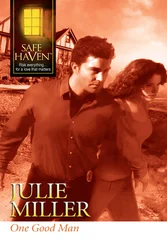Andrew Miller - One Morning Like a Bird
Здесь есть возможность читать онлайн «Andrew Miller - One Morning Like a Bird» весь текст электронной книги совершенно бесплатно (целиком полную версию без сокращений). В некоторых случаях можно слушать аудио, скачать через торрент в формате fb2 и присутствует краткое содержание. Год выпуска: 2009, Издательство: Sceptre, Жанр: Историческая проза, на английском языке. Описание произведения, (предисловие) а так же отзывы посетителей доступны на портале библиотеки ЛибКат.
- Название:One Morning Like a Bird
- Автор:
- Издательство:Sceptre
- Жанр:
- Год:2009
- ISBN:нет данных
- Рейтинг книги:4 / 5. Голосов: 1
-
Избранное:Добавить в избранное
- Отзывы:
-
Ваша оценка:
- 80
- 1
- 2
- 3
- 4
- 5
One Morning Like a Bird: краткое содержание, описание и аннотация
Предлагаем к чтению аннотацию, описание, краткое содержание или предисловие (зависит от того, что написал сам автор книги «One Morning Like a Bird»). Если вы не нашли необходимую информацию о книге — напишите в комментариях, мы постараемся отыскать её.
One Morning Like a Bird — читать онлайн бесплатно полную книгу (весь текст) целиком
Ниже представлен текст книги, разбитый по страницам. Система сохранения места последней прочитанной страницы, позволяет с удобством читать онлайн бесплатно книгу «One Morning Like a Bird», без необходимости каждый раз заново искать на чём Вы остановились. Поставьте закладку, и сможете в любой момент перейти на страницу, на которой закончили чтение.
Интервал:
Закладка:
The maid brings in a tray of tea and sweets, then a tray with sake flasks and sake cups. Yuji shuts the window and joins the others at the table. The hostess is telling them the local scandals — affairs, jealous lovers, who’s in money trouble, who’s disgraced. After twenty minutes the doors slide open. Two girls are kneeling in the corridor. They chant their greeting and enter. One of them Yuji recognises as the waitress from the Don Juan. The other is perhaps also a waitress, though with her purple kimono, the ribbons of raw silk in her hair, she could pass for a certain grade of geisha. She is not as pretty as the girl from the Don Juan but when she starts to talk it’s obvious she’s a natural storyteller, an excellent mimic. Soon she’s the favourite, and takes her place beside the sprawling Makiyama. The other girl, seeing that Ito and Kiyooka can have no interest in her, kneels in front of Yuji, picks a flask from the table, and fills his cup. She asks him if he likes to drink, if he likes the Ginza, if he likes tango or prefers some other kind of music. Does he ever go skiing in the winter? For herself, she has never skied, though sometimes she thinks she would like to try. How cold it is these last days. Cold as anything.
Every minute or two (though minutes are no longer evenly divided but float like globs of fat in water) Yuji holds out his cup and watches her replenish it. Now and then she lets him fill a cup for her. He wants to make her drunk — as drunk as he is himself. Then they will be helpless as children, and the worst that could happen is they wake in a pile on the mat together, daylight streaming through the window. He doesn’t mind that. What worries him is that she’s been given orders — by the hostess, by Makiyama even — to do something with him (or whichever of the men shows a taste for her). He steals glances at her while she pours for him, and sees, with inebriated clarity, that what is natural in her, her youth — she’s several years younger than him — her laboured, youthful interest in him, is not yet entirely sunk in artifice or the fatigue of her trade. She has little in common, then — little beyond the obvious — with the woman in the room behind Yokohama Docks, but it’s her he starts to think of now, of the hour he spent with her after the negotiations with Momoyo’s family had failed and in his anger, in the violence of his disappointment, he had set out to prove that love was an itch any man could satisfy by spending a few yen.
The place he chose, a street of unlicensed women, he had heard about from a student bragging at the university, and though it meant a train ride it also offered anonymity, for in Tokyo, a city where one is always running into the same people, where coincidences grow like bindweed (read Kafu), who knew who might, at the wrong moment, look out of a restaurant window, a passing taxi. .
The room he finally entered — he had walked the length of that street a dozen times, building his resolve — had nothing but a narrow mattress on the floor, and walls so thin any passing sailor could have punched a hole and watched the woman laugh at him, his ignorance. She called him, as she unbuttoned his shirt, her ‘little virgin’, and when, hotly, he protested this, telling her how his mother’s friend Mrs Sasaki, under the guise of giving him some of her deceased husband’s good clothes, had, shortly after his nineteenth birthday, made him ‘a man who knows women’, she applauded with her fingertips, crying, ‘So you’ve done it once! With one of Mama’s friends! Congratulations!’ And with this woman, with her gold teeth, her tongue like a stick, he let himself be intimate, had lain on her, gasping and writhing as though swimming through sewage.
The hostess is at the door. She is so sorry to disturb them, but she wishes the gentlemen to know that the bath is ready. She bows, withdraws. The girl with the ribbons hauls Makiyama to his feet. Yuji, an unlit cigarette between his fingers (who gave it to him? If he smoked it, he’d choke), hears himself talking — passionately, insistently — about Momoyo, his dear Momoyo, with whom he shared a thousand silent glances of innocent devotion. If they had married, he would by now — it can be taken for granted — be established in some reputable university or publishing house or newspaper office or something . Certainly he would not be living in a former sewing room. He would not be writing about toothpaste. They would have an old house in the High City, a verandah, tangled with flowers. And then a child, a grandchild for Mother, a little boy who, as the first-born, could even be called Ryuichi.
‘But how nice,’ says the waitress, quickly hiding her yawn. ‘So you’re definitely going to marry her?’
‘Who?’
‘Miss Momoyo?’
‘But this was years ago. Don’t you get it? Her family refused to permit the match. They sent a letter to my father. “Momoyo is, regretfully, too young for such a momentous step.” It was a stupid lie, of course. The truth was, they could never let their daughter marry into a family in which the mother had not left the house in a decade. It would be even easier for them, today. Today we would not even dare to ask.’
The waitress looks confused, then sorry for him. He knows that he should ask her something now, should flirt with her, make jokes, even if they’re bad ones, but he needs, quite urgently, to find the toilets, to be privately in the darkness, to press his forehead against something cool.
He puts down his cup, then climbs a rope of air until he’s standing. Somehow he gets clear of the room. The corridor is bright, bare. No one’s about. He cannot remember where the stairs are. He takes a few steps in one direction, a few in the other. Through the walls and doors of the rooms on either side of him come murmurings, muffled laughter. He hears what sounds like a woman weeping. He wishes it would stop. He wants to leave now. He must leave . .
At his shoulder, a door slides back, half the width of a face at first, then wider. The girl with the ribbons is there, undressed to her under-kimono, which is bound so loosely it looks as if at any sudden movement it must slip to the floor. Below her throat he can see the place where her make-up ends and the rose of unpowdered skin begins.
‘Your boss is snoring,’ she whispers, ‘and now I have no one to wash my back.’ She pouts at him, widens her eyes.
He asks her where the toilets are.
‘Downstairs,’ she says, and points. ‘Shall I wait for you?’ she asks.
‘Please do,’ he says. ‘Yes.’
She bows. He backs away, finds the stairs, finds the stalls, vomits, spits into the stinking hole, then sits on the step in the foyer putting on his boots. He has, in a way he cannot begin to comprehend, lost one of his socks. The sight of his naked foot moves him almost to tears. He is touching it, stroking it as if it was some poor hairless cat, when a movement in the mirror beside the door makes him glance up. The hostess is standing behind him at the bottom of the stairs. There is nothing kind in that face and he does not dare to turn. He thrusts his feet, the bare and the dressed, into his boots, ties the laces, snatches his coat, and plunges into the alley, racing headlong through Sanbancho, a runner matched against himself.
15
Twenty-four hours after reaching home from the House of Falling Leaves, his winter illness begins. It announces itself with the usual prefatory dream, a fire dream in which he stumbles through dense smoke across a field of charred grass in search of the boy with the shutter.
He has had these dreams so many years now it is hard to know where history ends and the invention of his dreams begins. Certain things, of course, he has no need to question, for they are facts known to everyone. He has not simply dreamt the thirty thousand who burnt to death in the grounds of the old army-clothing depot on the east bank and whose charred bones and blackened teeth are still uncovered by builders, by anglers digging for bait, by ghoulish children. But the rest of it — the boy, the shutter, the miraculous escape — where did he hear all this? Did Father tell him? Grandfather? Someone at school? Or was it one of those newspaper accounts, those ‘My Story’ columns that ran for months after the earthquake, tales of improbable survival that began with lines such as ‘I was sitting quietly a home . .’ or, ‘Just as I turned into Okura Dori . .’
Читать дальшеИнтервал:
Закладка:
Похожие книги на «One Morning Like a Bird»
Представляем Вашему вниманию похожие книги на «One Morning Like a Bird» списком для выбора. Мы отобрали схожую по названию и смыслу литературу в надежде предоставить читателям больше вариантов отыскать новые, интересные, ещё непрочитанные произведения.
Обсуждение, отзывы о книге «One Morning Like a Bird» и просто собственные мнения читателей. Оставьте ваши комментарии, напишите, что Вы думаете о произведении, его смысле или главных героях. Укажите что конкретно понравилось, а что нет, и почему Вы так считаете.












